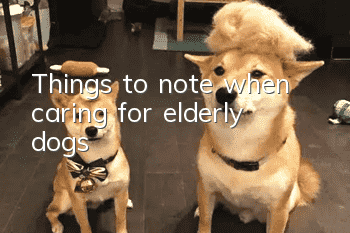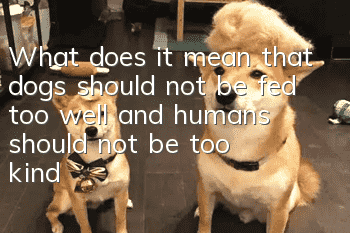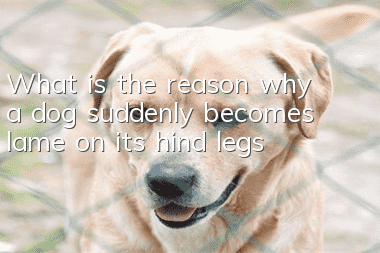Things to note when caring for elderly dogs

Things to note when taking care of elderly dogs:
1. Balanced nutrition: Because elderly dogs move slowly and their muscles degenerate, the food they eat must also change accordingly. They only need a small amount of high-quality protein, because this can make it easier for the intestines and stomach to absorb. Therefore, there should be more chicken or tender beef in the food. Older dogs have less activity and their food should be lower in calories to prevent them from gaining weight and affecting their health.
2. Groom and bathe frequently: When a dog ages, its coat will become dry and brittle, its skin will also become dry, it will be more susceptible to infection and sensitivity, and it may also get fleas. Therefore, the owner should comb and bathe it frequently, and regularly check whether there are any lumps on its skin during combing. If there is any problem, it should be checked by a veterinarian as soon as possible.
3. Preventive physical examination: Dogs have reduced immunity and are more susceptible to infectious diseases such as distemper, so dog owners need to give them vaccinations. The gastrointestinal immunity of old dogs is no longer what it used to be, and they are prone to parasites. Some parasites can even destroy the heart and kidney functions of dogs, so they must be checked for internal parasites regularly.
4. Pay attention to weather changes: It is more difficult for old dogs to adapt to weather changes, because many dogs will suffer from joint problems as they age, and weather that is too cold or too hot will make them uncomfortable. . Moreover, old dogs have weak immunity and are prone to respiratory problems, so they must be dressed to avoid catching cold when the weather is cold.
Symptoms of old dogs:
1. The color of the dog’s hair slowly turns white or rough.
2. The dog’s hearing and vision gradually decline, and it is possible that the dog will collide with transparent glass when walking.
3. The dog’s daily exercise volume has significantly decreased, and its walking posture has changed.
4. The dog’s appetite decreased significantly and its weight gradually decreased.
5. The dog’s body organs have abnormal reactions, such as polydipsia, polyuria or high blood pressure.
- How is canine otitis externa treated?
- 4 reasons why dogs have a bad appetite
- Why do Bichons like to lick people?
- Among the top ten most difficult dog breeds to train in the world, Dalmatians rank first!
- How much should I feed a 3-month-old dog at one time?
- What are the differences between puppy calcium deficiency convulsions and canine distemper convulsions?
- What causes tear troughs in dogs
- Can Shuanghuanglian oral liquid cure canine distemper?
- How much does a Malinois cost and how to train it_Characteristics | Pictures
- 10 common causes of vomiting and diarrhea in dogs



